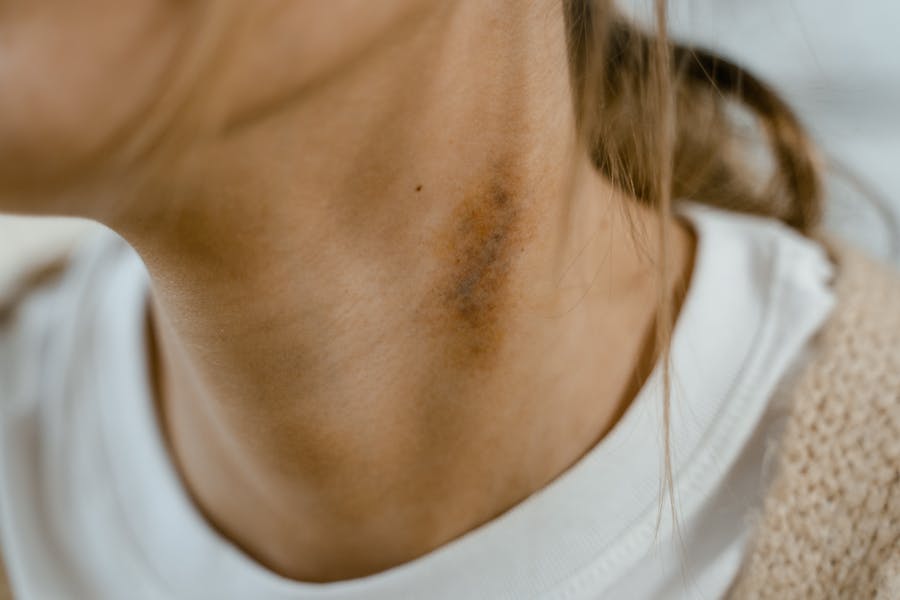Domestic Battery (California Penal Code § 243(e)(1)) in California

Being charged with domestic battery in California can be a frightening experience with potential consequences that extend far beyond the courtroom. Unlike other battery charges, domestic battery involves special relationships between the parties and carries unique penalties designed to address the dynamics of domestic violence.
At David P. Shapiro Criminal Defense Attorneys, we understand the sensitive nature of these charges and the impact they can have on your family, reputation, and future. This guide explains what you need to know if you’re facing domestic battery charges in San Diego or Chula Vista.
What is Domestic Battery Under California Law?
Domestic battery is defined under California Penal Code § 243(e)(1), which states:
“When a battery is committed against a spouse, a person with whom the defendant is cohabiting, a person who is the parent of the defendant’s child, former spouse, fiancé, or fiancée, or a person with whom the defendant currently has, or has previously had, a dating or engagement relationship, the battery is punishable by a fine not exceeding two thousand dollars ($2,000), or by imprisonment in a county jail for a period of not more than one year, or by both that fine and imprisonment.”
Unlike other forms of battery, domestic battery specifically addresses violence within intimate relationships. The law recognizes several key relationships that fall under this statute:
- Current or former spouses
- Cohabitants (people living together in a relationship)
- Parents of the same child
- Current or former fiancés/fiancées
- Current or former dating partners
It’s important to understand that domestic battery does not require visible injury to the alleged victim. Even slight touching, if done in a harmful or offensive manner, can constitute domestic battery if it involves one of these specified relationships.
Elements of Domestic Battery That Prosecutors Must Prove
For a domestic battery conviction under Penal Code § 243(e)(1), the prosecution must prove beyond a reasonable doubt:
- You willfully and unlawfully touched someone in a harmful or offensive manner
- The person you touched was your current or former spouse, cohabitant, co-parent, fiancé(e), or dating partner
- You were not acting in self-defense or defense of someone else
The term “willfully” means you acted on purpose. The touching doesn’t need to cause pain or injury—even slight contact can qualify if it was done in a rude or angry manner.
Penalties for Domestic Battery in California
Domestic battery under PC § 243(e)(1) is charged as a misdemeanor in California. The potential consequences include:
Direct Criminal Penalties
- Up to one year in county jail
- A fine of up to $2,000
- Or both imprisonment and fine
Mandatory Probation Conditions
If you’re granted probation for domestic battery, the court must impose certain conditions:
- Completion of a batterer’s treatment program lasting at least one year
- Payment of a minimum $500 fine (unless the judge determines you’re unable to pay)
- Compliance with any protective or stay-away orders
Enhanced Penalties for Repeat Offenders
If you have a prior conviction for domestic battery or certain other domestic violence offenses, you face enhanced penalties:
- A mandatory minimum of 48 hours in county jail
- More restrictive probation terms
- Potentially longer batterer’s treatment programs
Alternative Sentencing Options
The court may order alternative penalties in lieu of fines, such as:
- Payments to a domestic violence shelter (up to $5,000)
- Reimbursement to the victim for counseling expenses or other reasonable costs related to the offense
How Domestic Battery Differs From Other Forms of Battery
Domestic battery differs from simple battery (PC § 243(a)) and battery causing serious bodily injury (PC § 243(d)) in several important ways:
Relationship Requirement
The key difference is the requirement of a specific relationship between the defendant and the alleged victim. Simple battery can involve any person, while domestic battery specifically addresses intimate or familial relationships.
Specialized Treatment Programs
Domestic battery convictions typically require completion of batterer’s treatment programs, which are not required for simple battery convictions.
Enhanced Scrutiny and Prosecution
Domestic violence cases often receive heightened attention from prosecutors, who may be less willing to offer favorable plea deals compared to simple battery cases.
Immigration Consequences
For non-citizens, domestic battery convictions may have more severe immigration consequences than simple battery, potentially qualifying as crimes of domestic violence that can lead to deportation or inadmissibility.
Common Defense Strategies for Domestic Battery Charges
Several defense strategies may be effective when facing domestic battery charges:
Self-Defense
If you reasonably believed you were in danger of imminent harm and used proportional force to protect yourself, this may constitute a valid defense.
Defense of Others
Similarly, if you used reasonable force to protect someone else from imminent harm, this may provide a defense to domestic battery charges.
False Accusations
Unfortunately, domestic battery allegations are sometimes made falsely during contentious divorces, custody disputes, or out of anger or jealousy. A skilled defense attorney can help identify inconsistencies in the accuser’s story or evidence suggesting a motive to falsely accuse.
Lack of Willful Conduct
If the contact was accidental rather than willful, this negates a key element of the offense.
Insufficient Evidence
The prosecution must prove all elements beyond a reasonable doubt. Often, domestic incidents occur in private with no witnesses other than the parties involved, making it difficult for prosecutors to meet their burden of proof.
Factual Innocence
In some cases, the alleged incident simply did not occur, or you were not the person who committed the act.
Collateral Consequences of a Domestic Battery Conviction
Beyond the direct criminal penalties, a domestic battery conviction can have far-reaching consequences:
Protective Orders
The court may issue protective orders prohibiting contact with the alleged victim and potentially affecting your living arrangements and access to your home.
Child Custody and Visitation
Domestic violence convictions can significantly impact family court proceedings regarding custody and visitation rights with your children.
Employment Impacts
Many employers conduct background checks, and a domestic violence conviction may limit job opportunities, particularly in fields requiring security clearances, professional licensing, or positions of public trust.
Housing Challenges
Landlords often conduct background checks and may deny housing to those with domestic violence convictions.
Firearm Restrictions
A domestic battery conviction results in a 10-year prohibition on owning or possessing firearms under California law, and a lifetime ban under federal law.
Professional Licensing Issues
Various professions require licensing that can be jeopardized by domestic violence convictions, including healthcare, education, law, real estate, and many others.
Why You Need an Experienced Defense Attorney
Domestic battery charges require skilled legal representation because:
- The emotional nature of these cases can complicate both the legal process and potential resolutions
- The specialized penalties and probation requirements demand knowledge of domestic violence courts and programs
- The collateral consequences can be life-altering and may be more significant than the direct criminal penalties
- Negotiating alternatives to traditional prosecution often requires established relationships with prosecutors and courts
How David P. Shapiro Criminal Defense Attorneys Can Help
Our San Diego defense team brings specific advantages to your domestic battery case:
- Experience with domestic violence courts and how local judges approach these cases
- Relationships with prosecutors that facilitate meaningful discussions about case resolution
- Knowledge of diversion and treatment options that can lead to dismissed charges in appropriate cases
- Strategic case analysis to identify the most effective defense approach for your specific situation
- Sensitivity to the family dynamics that often underlie domestic battery allegations
When you work with our firm, we conduct a thorough evaluation of the evidence, identify potential defenses, and develop a strategy tailored to your unique circumstances. Our goal is to achieve the best possible outcome while minimizing the impact on your life, family relationships, and future opportunities.
Frequently Asked Questions About Domestic Battery Charges
Can a domestic battery charge be expunged from my record?
In many cases, yes. After successfully completing probation, you may be eligible to petition for dismissal (expungement) under PC § 1203.4. While this doesn’t completely erase the conviction, it can significantly reduce its impact on employment and other opportunities.
Will I definitely go to jail if convicted of domestic battery?
Not necessarily. While jail time is a possibility, many first-time offenders receive probation with alternative sentencing options instead of jail, particularly if they are amenable to treatment and counseling.
Can the alleged victim drop the charges?
Contrary to popular belief, the alleged victim doesn’t have the power to “drop charges.” Once reported, domestic violence cases are prosecuted by the district or city attorney, not the alleged victim. However, the victim’s wishes and willingness to cooperate can influence the prosecutor’s decisions.
How long does the prosecution have to file domestic battery charges?
For misdemeanor domestic battery, the statute of limitations is one year from the date of the alleged incident.
Will a domestic battery conviction affect my immigration status?
Potentially, yes. Domestic violence convictions can be classified as crimes of moral turpitude or crimes of domestic violence for immigration purposes, potentially leading to deportation or inadmissibility issues for non-citizens.
Contact a San Diego Domestic Battery Defense Attorney Today
If you’re facing domestic battery charges under California Penal Code § 243(e)(1), don’t wait to seek legal representation. The allegations alone can disrupt your life, and the potential consequences of a conviction are significant.
If you or someone you love is facing criminal charges in California, swift action is imperative. The penalties can be life altering and long lasting. Give us a call today to set up a case evaluation with one of our attorneys and learn how to best protect your freedom and future.
Too often, we see clients who “wait and see,” unsure of the legal landscape ahead, only for charges to escalate. They then find themselves backpedaling into a bad defense and an even worse lawyer. Don’t let that happen to you. Protect your freedom. Protect your future. Know your rights.
The contents of this article and blog are meant for informational and marketing purposes only and do not constitute legal advice. Viewing and/or use of the blog does not form an attorney-client relationship. No statements in this post are a guarantee, warranty, or prediction of a particular result in your case.









